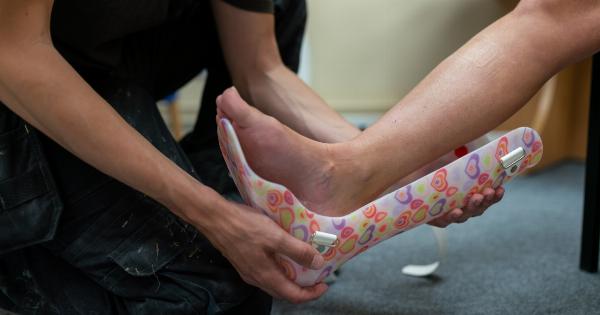Poor circulation refers to the inadequate flow of blood to various parts of the body. It can occur due to several underlying health conditions or can be a result of certain lifestyle factors.
While occasional instances of poor circulation may not be a cause for concern, persistent or worsening symptoms may warrant medical attention. In this article, we will discuss the signs and symptoms of poor circulation that indicate when it is time to seek help.
Symptoms of Poor Circulation
Recognizing the symptoms of poor circulation is crucial in identifying when you should be concerned. Some common symptoms include:.
1. Cold Extremities
Do your hands and feet often feel cold, even when the weather is warm? This could be a sign of poor circulation. When blood flow is restricted, it affects the body’s ability to stay adequately warm, resulting in cold extremities.
2. Numbness or Tingling Sensation
If you frequently experience numbness or a tingling sensation in your limbs, it could be an indication of poor circulation. Reduced blood flow can prevent nerves from receiving adequate oxygen and nutrients, leading to these sensations.
3. Swelling
Swelling in the legs, ankles, or feet can also occur when circulation is impaired. This swelling, known as edema, is often a result of fluid retention and can be accompanied by a feeling of heaviness or discomfort.
4. Muscle Cramps
Cramps, especially in the calves, thighs, or buttocks, can be a sign of poor circulation. Inadequate blood flow can cause muscle fatigue and lead to painful cramping, particularly during physical activity.
5. Slow Healing
If you notice that cuts, sores, or wounds take longer than usual to heal, it may be due to poor circulation.
An insufficient blood supply hinders the delivery of essential nutrients and oxygen required for the healing process, leading to delayed healing.
6. Changes in Skin Color
Pale or bluish skin discoloration, especially in the extremities such as the fingers and toes, can be indicative of poor circulation. When blood flow is compromised, the skin may not receive an adequate oxygen supply, resulting in a change in color.
7. Hair Loss
Poor circulation can affect the hair follicles, leading to hair loss or thinning. If you notice excessive hair fall or lack of hair growth, it may be a cause for concern regarding your blood flow.
8. Fatigue and Weakness
Feeling constantly tired or weak can be a result of poor circulation. When organs and muscles do not receive an adequate blood supply, they may not function optimally, leading to fatigue and weakness.
9. Cognitive Issues
Inadequate blood flow to the brain can impair cognitive function and lead to memory problems, difficulty concentrating, or an overall feeling of mental fogginess.
10. Erectile Dysfunction
In men, poor circulation can contribute to erectile dysfunction. Restricted blood flow to the genital area may prevent a firm and lasting erection.
When to Seek Medical Assistance
While occasional instances of the symptoms mentioned above may not be a cause for immediate concern, persistent or worsening symptoms should prompt you to seek medical assistance.
Additionally, if you have underlying conditions such as diabetes or heart disease, it is essential to monitor your circulation regularly.
Your healthcare professional can help diagnose the underlying cause of poor circulation through a physical examination and may recommend further tests such as blood tests, ultrasounds, or angiograms.
Treatment options will depend on the specific cause and severity of your condition.
In some cases, lifestyle modifications can alleviate symptoms and improve circulation. These may include regular exercise, maintaining a healthy weight, quitting smoking, managing stress levels, and wearing compression stockings.
In more severe cases, your doctor may prescribe medications to improve circulation or recommend surgical interventions, such as angioplasty or bypass surgery.
Conclusion
Poor circulation can significantly impact your overall wellbeing and quality of life. Recognizing the symptoms and understanding when to seek medical assistance is crucial in managing the underlying causes and preventing potential complications.
If you experience persistent or worsening symptoms of poor circulation, consult with a healthcare professional who can provide a proper diagnosis and recommend appropriate treatment options.






























